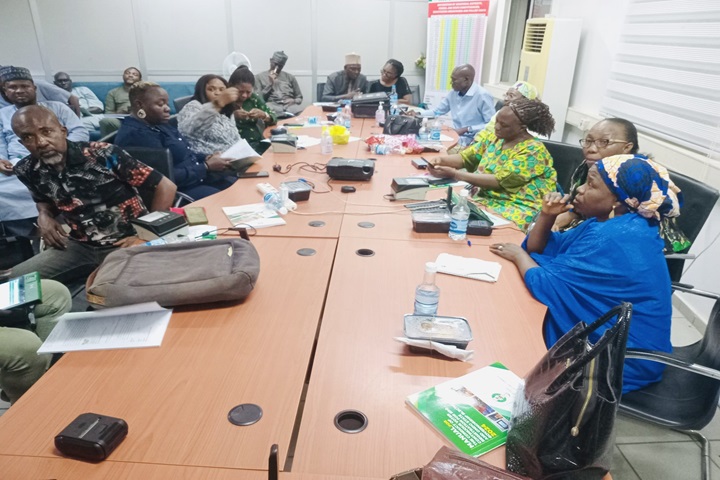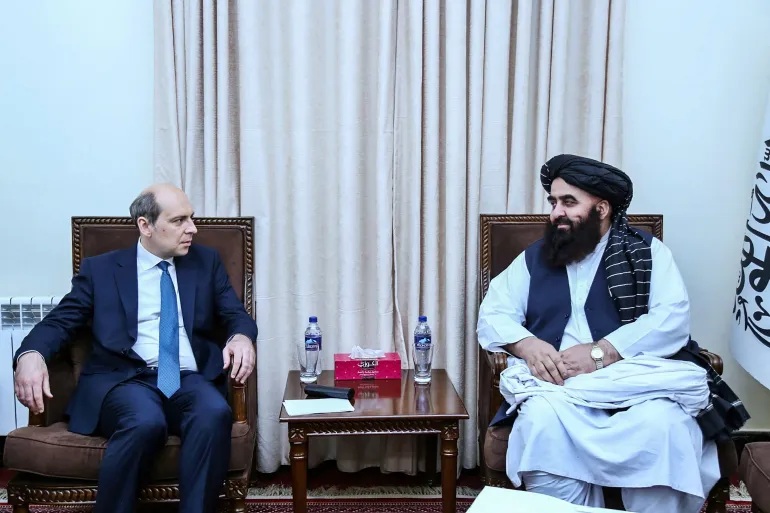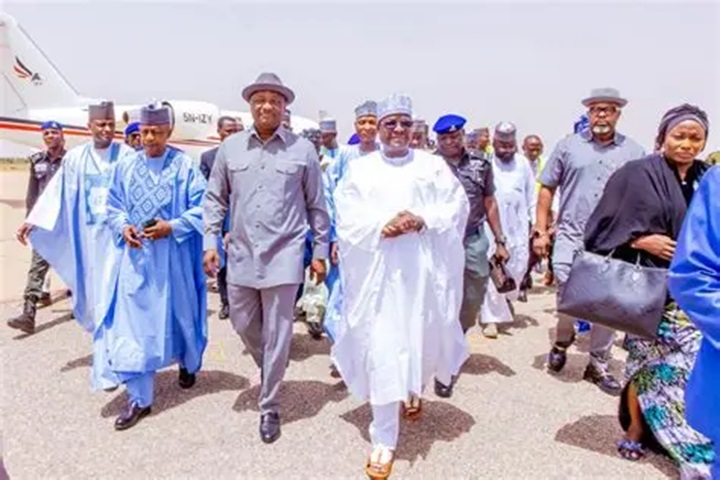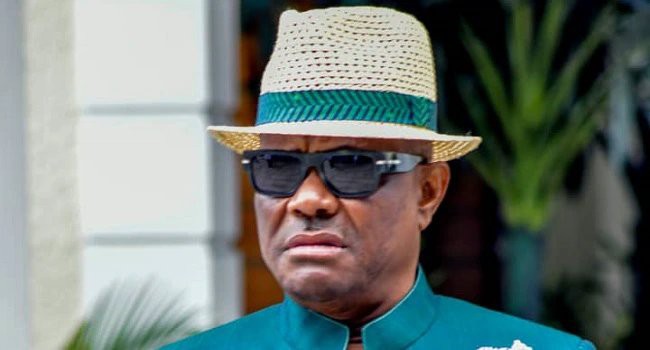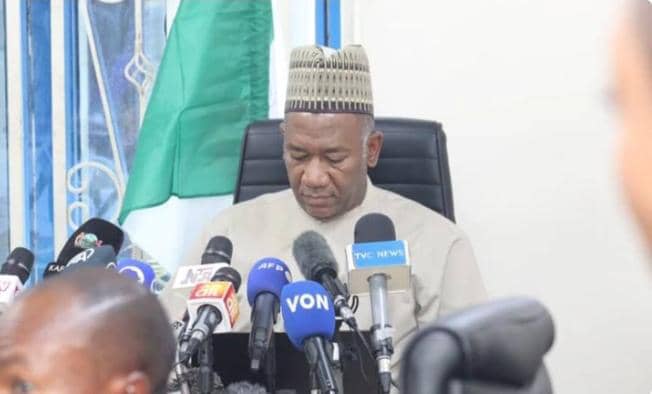Pidgin Corner
Supreme Court don rule on case wey some governors carry go against EFCC, ICPC, NFIU

Di Supreme Court don dismiss case wey dey challenge di establishment and di prosecutorial powers of di Economic and Financial Crimes Commission (EFCC), di Naija Financial Intelligence Unit (NFIU) and di Independent Corrupt Practices Commission (ICPC).
Di apex court talk say di case na “selfish,” wey dey support not only di establishment of di anti-graft agencies but also dem powers to investigate and prosecute financial crimes for di whole federation.
Seven pipo wey dey for top court, wey Justice Uwani Abba-Aji dey lead, don pass judgment on Friday for cases wey Kogi State Attorney General and odas file against Attorney General of di Federation.
Nairametrics report say EFCC na wetin National Assembly create by Act on December 12, 2002.
But di act don change and lawmakers don reenact am for 2004, and President Olusegun Obasanjo sign am into law on June 4, 2004, twenty years ago. Wetin happen for court.
In im oral argument, Mohammed Abdulwahab, SAN, wey be counsel for Kogi State, wey first carry di mata come court, draw di apex court attention to one previous Supreme Court observation wey talk say United Nations Convention Against Corruption don enter di EFCC Establishment Act, wey no gree with Section 12 of di 1999 Constitution (as e don change).
Section 12 talk say, “No treaty wey dey between di Federation and any oda country go get di force of law unless e don turn to law by di National Assembly.”
“A bill wey National Assembly pass according to wetin subsection (2) of dissection talk no go fit reach President for assent and no go fit become law unless e get approval from majority of all di Houses of Assembly for di Federation.”
Abdulwahab argue say di constitutional provision require say majority of di states’ Houses of Assembly suppose agree with diir federal legislators to pass di EFCC Act and oda related laws.
He talk say dis requirement no meet wen dem establish EFCC Act, dey urge di highest court make dem rule say di creation of di anti-graft agencies no follow di law.
“I dey beg your Lordship make you accept di processes. We dey urge your Lordship make you grant all di reliefs wey we dey ask for.”
“We also dey challenge di foundation of dem laws wey create NFIU, EFCC, etc., to avoid any constitutional wahala.”
“We dey urge you make you allow our suit and give heavy costs for di Plaintiff wey dey record,” e talk.
He still ask di apex court make dem determine whedir di EFCC Act, ICPC Act, and NFIU Act fit dey used to criminalize di use of funds wey belong to di states and local governments and if di EFCC, NFIU, or any agency fit investigate, invite, or arrest anybody wey dey involved for di management of funds wey belong to di states or local governments.
Plenty states align with Abdulwahab’s submission, while some withdraw from di mata.
For him side, di Attorney General of di Federation (AGF), Lateef Fagbemi, SAN, talk say di establishment of di anti-graft agencies don settle well by plenty previous Supreme Court verdicts.
Him argue say if dem grant di states’ reliefs, e go mean say di apex court don stop di agencies wey suppose fight corruption for di whole federation. Him dey urge di court make dem dismiss di suit.
Di Supreme Court, after dem don observe say di issues wey plenty states raise against di establishment and constitutionality of di anti-graft agencies dey similar, hold say di judgment wey dem go give on di main appeal by Kogi State go apply to all di states wey dey before dem.
Wetin Supreme Court Talk
On Friday, Abba-Aji start to talk about di preliminary objection wey di AGF bring concerning jurisdiction.
She talk say, even though di EFCC Act don dey challenged for di previous case wey di parties mention, di current case seem to don bring some agencies wey no dey part of di previous case.
She still hold say di plaintiff case na against di AGF (di defendant) and no be against any agency of di federal government; so, di Supreme Court get jurisdiction to decide di case.
“Plus, di non-joinder of a party no go affect di jurisdiction of dis court.”
“For mata for public interest, di AGF get legal right (locus standi) to carry action or defend am,” na wetin di judge talk.
As she dey check di mata, she talk say di NFIU Act na wetin National Assembly pass to fit fight money laundering and oda crime wey dey follow am.
“By Section 15 of di 1999 Constitution, and di decision wey dis apex court make for AG vs Ondo, National Assembly get power to pass law wey concern fighting corruption.
Nno mata whether di money belong to federal, state, or local government,” she talk, add say di states na part of di federal government.
She talk say wia dem make guideline based on act wey National Assembly establish, e no fit challenge constitutionality and legality.
She add say for oda agencies wey dem mention for di case, dem still get power to investigate financial crime.
“True true, di effect of di EFCC Act no get doubt say e get power to investigate and prosecute financial crime,” she talk.
Di apex court hold say di first plaintiff (Kogi AG) and odas “open di can of worms and skeletons for dem cupboard” wen dem talk say di EFCC don invite and investigate officials of di state government and no be di federal government.
Dis one show “di selfish reasons wey dey behind di plaintiff suit,” Abba-Aji talk.
She talk say as Kogi State get di right to make laws, any law wey no gree with di EFCC Act, NFIU Act, and ICPC Act, wey di National Assembly don pass, no fit get di force of law.
“No state get di right to make law wey no match di laws wey di National Assembly don pass,” she talk, she dey blame di AG of Kogi for acting like “puppet” for corrupt mata.
She conclude say nothing dey for di NFIU Act wey go disturb di powers of states to manage dem funds. “I dey resolve dis mata against di plaintiffs,” di apex court talk.
for di EFCC Act, di apex court talk say di inclusion of di UN Convention for di act na to address global issues, and di National Assembly fit make laws on corruption without ratification by di Houses of Assembly.
Di apex court conclude say di EFCC Act dey competent, as e bin dey enacted by di National Assembly within im legislative competence.
“Di plaintiff suit fail and e dey dismissed completely,” she talk, for unanimous judgment.
Wetin You Go Know Di EFCC and oda agencies na Naija’s frontline anti-graft institutions wey don make sure say dem investigate and prosecute plenty financial crimes across di federation.
For Diaspora Digital Media Updates click on Whatsapp, or Telegram. For eyewitness accounts/ reports/ articles, write to: citizenreports@diasporadigitalmedia.com. Follow us on X (Fomerly Twitter) or Facebook



